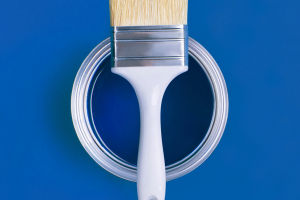Makeup has become an indispensable part of people's lives.
However, there are several common misconceptions regarding cosmetics awareness. Here are some:
"Natural" is Better Than "Synthetic"?
Often, cosmetics may contain both natural and synthetic ingredients. Some believe that synthetic chemicals are harmful or inferior, while "natural" is presumed to be harmless. However, this viewpoint lacks basis.
Both "natural" and "synthetic" ingredients can possess either good safety profiles or potential risks. For instance, many 'natural' sources can produce toxic substances or allergens, and notably, 98 natural ingredients are banned under cosmetics safety standards. Additionally, some wild mushrooms can be deadly, while natural foods like seafood and peanuts can cause severe allergic reactions.
"Natural" or "synthetic" refers to the source of the ingredients and doesn't directly correlate with their safety or quality. It's crucial not to be misled by the notion of "natural." Instead, we should learn to read the full ingredient labels on cosmetics. Ingredients are listed by quantity, with the most abundant first.
For example, water, being a common solvent, is typically listed first in cosmetics. Some products marketed as "all-natural" may still have water listed as the primary ingredient, indicating minimal plant-based additives. However, the order of ingredients doesn't denote their importance; many active ingredients might be listed towards the end but are essential for the product's efficacy.
Are "Additive-Free" Cosmetics Safe?
With increasing concerns about adverse skin reactions from cosmetics, particularly regarding fragrances and preservatives, "additive-free" cosmetics have emerged. However, does this mean they are entirely safe?
Currently, "additive-free" doesn't have specific regulatory boundaries or industry standards to follow. The term 'additive-free' often implies that potentially hazardous ingredients are excluded during production.
The marketing of "additive-free" products often creates a perception of gentleness and safety. However, "additive-free" doesn't equate to 100% safety.
Every individual has different sensitivities, allergies, and skin types. For those with sensitive skin, any ingredient in cosmetics can potentially cause skin irritation. While "additive-free" products might have stricter ingredient selection and concentration controls, they are not always absolutely safe.
Excessive Skincare Risks
1. Clogged Pores: Excessive use of skincare products, if not absorbed promptly, can lead to clogged pores. Hence, it's crucial to adopt proper usage methods.
2. Imbalanced Hydration: With a plethora of skincare products available, it's vital to use those suitable for one's skin type. Improper usage may disrupt the skin's moisture-oil balance.
3. Acne Breakouts: Many skincare products contain a variety of synthetic chemicals. Using low-quality products can lead to acne breakouts. Seeking treatment from reputable clinics, such as through laser therapy, might be necessary in severe cases.
In cosmetics awareness, we often fall prey to misconceptions, such as believing "natural" is superior to "synthetic" or assuming "additive-free" implies safety. However, the truth lies in the safety and efficacy of cosmetics, which depend on the ingredients' sources and concentrations. Therefore, it's crucial to scrutinize ingredient labels and choose products that suit one's skin type and needs.
Moreover, excessive use of skincare products can lead to issues such as clogged pores, hydration imbalances, and acne breakouts. Hence, it's imperative to use cosmetics and skin care products moderately, scientifically, and appropriately.


